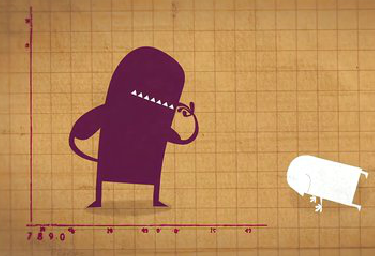Moreover, when updating impressions based on people's behaviors,
再者,当别人的行为刷新了印象,
activity in the ventrolateral prefrontal cortex
腹内侧前额叶皮层的活动
and the superior temporal sulcus correlates with perceptions of how frequently those behaviors occur in daily life.
以及颞上沟告诉我们这些行为在日常生活中是否频繁。
In other words, the brain seems to be tracking low-level, statistical properties of behavior
换言之,大脑似乎在进行低水平的行为统计
in order to make complex decisions regarding other people's character.
以此来做出关于别人品行如何的复杂的决定。
It needs to decide is this person's behavior typical or is it out of the ordinary?
大脑需要判断这个人的行为是十分典型还是与众不同。
In the situation with the obnoxious-football-fan-turned-good-samaritan, your brain says,
在这个烦人的球迷变成好人的情境下,你的大脑告诉你

Well, in my experience, pretty much anyone would lend someone their umbrella,
依据往常经验,通常大部分人都会为别人遮雨,
but the way this guy acted at the football game, that was unusual.
但这家伙在球赛时的举动可不多见。
And so, you decide to go with your first impression.
所以,你决定遵从自己的第一印象。
There's a good moral in this data: your brain, and by extension you, might care more about the very negative,
这个信息里存在良好的道德:你的大脑,或者说你本人也许更关注别人做出的负面的、
immoral things another person has done compared to the very positive, moral things,
不道德的事而不是积极的、有道德的事,
but it's a direct result of the comparative rarity of those bad behaviors.
但这是那些罕见的坏行为带来的直接结果。
We're more used to people being basically good, like taking time to help a stranger in need.
我们习惯上认为人大体上是好的,乐于花时间帮助别人。
In this context, bad might be stronger than good, but only because good is more plentiful.
在这样的背景下,坏影响就远多于好的,但这只是因为好事更常见。
Think about the last time you judged someone based on their behavior,
回想一下你上次根据一个人的所作所为来评价一个人,
especially a time when you really feel like you changed your mind about someone.
尤其是在你真的想要改变对某人的看法时。
Was the behavior that caused you to update your impression something you'd expect anyone to do,
那个引发你改变对方印象的行为,是每个人都会做的事,
or was it something totally out of the ordinary?
还是不同寻常的事?



